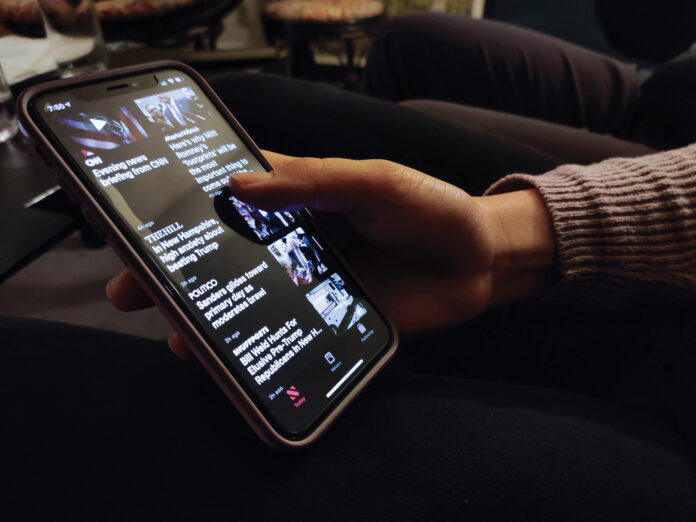Fake news or legitimate information? Many UC Davis students are able to make the distinction
Impeachment has been a hot topic of conversation over the past few months. House Speaker Nancy Pelosi’s announcement of the impeachment inquiry on Sept. 24, 2019 was followed with much media coverage, perhaps most notably on Dec. 13, 2019, when the House Judiciary Committee voted to recommend two articles of impeachment, and on Feb. 5, 2020, when the Senate acquitted the president on both charges.
The high density of news coverage of both events has spurred a discussion around media literacy, defined as “the ability to access, analyze, evaluate, create and act using all forms of communication,” according to the National Association for Media Literacy Education (NAMLE).
Third-year anthropology major Cierra White mainly consumes her news digitally, and she often finds articles on Instagram that pique her interest. She has found a way to deal with the fact that there can sometimes be a lot of information presented.
“I read a lot of The Telegraph, weirdly enough, which is not an American publication,” White said. “But [it] will cover things in a simpler manner because it is for people outside of the U.S., and so it’s a little easier to understand.”
White said her knowledge about the impeachment during the proceedings was “pretty low” since she had a lot going on at home and didn’t consume too much of the news surrounding the impeachment. Since a president had not been impeached during her lifetime, White wasn’t sure what the process looked like and said that the limited amount of information that she followed was valuable.
“I just kind of hear little tidbits of information,” White said. “I know that our president was impeached, but that it did not affect his standing as president. Nothing really changed in the power structures.”
White lives at home, with her “very literate and educated” grandmother and parents — the news is often on in the background and the family makes a point to discuss current events.
“We talk about what’s going on and what’s happening on both sides,” White said. “I’m always open for learning.”
White believes that UC Davis students’ media literacy mostly depends on their major and said students studying policy or students who are involved in events like speech and debate or mock trial are likely to be “more oriented in modern happenings.”
“I think that it probably just depends on your personality,” White said. “If you’re just here to study and that’s what you want to do, then you will. But if you are looking to broaden your horizons, chatting with other students about current events would be really important.”
Second-year materials science and engineering major Tyler Grey agrees with this sentiment. Grey considers himself fairly informed in regards to the impeachment — often checking for updates on the proceedings, usually on the home pages of search engines such as Google, Yahoo or Bing.
“Students focus heavily on specific items that are relevant to their studies and their careers, as well as any political items that might affect their studies,” Grey said.
He said conversations about the impeachment with friends and peers involved discussions of what the political, economic and socioeconomic ramifications of different outcomes would be.
Associate professor of political science Amber Boydstun said the UC Davis students she has interacted with are quite informed about national and global news. Her impressions, however, are based on the students in her classes who come to office hours, emphasizing that this pool is a non-representative sample of students.
“My perception is that UC Davis students are remarkably savvy in their understanding of world events and in their ability to choose and interpret their news sources wisely,” Boydstun said.
In a class that Boydstun taught in Fall 2019, she assigned a project asking her students to track their media consumption for a day and write a diary about their experience.
“Even above the high esteem with which I already hold UC Davis students and their media savviness, I was very pleasantly surprised to see […] that they seemed to be very self-aware,” Boydstun said.
Through the project, she observed that they had “very good” media information habits. Boydstun is not teaching any undergraduate courses this quarter, but she said it would shock her if students were not “riveted to the impeachment” and paying close attention to the proceedings.
“This is going to sound sappy, but talking with UC Davis students is what gives me hope for the future,” Boydstun said.
Written by: Anjini Venugopal — features@theaggie.org





